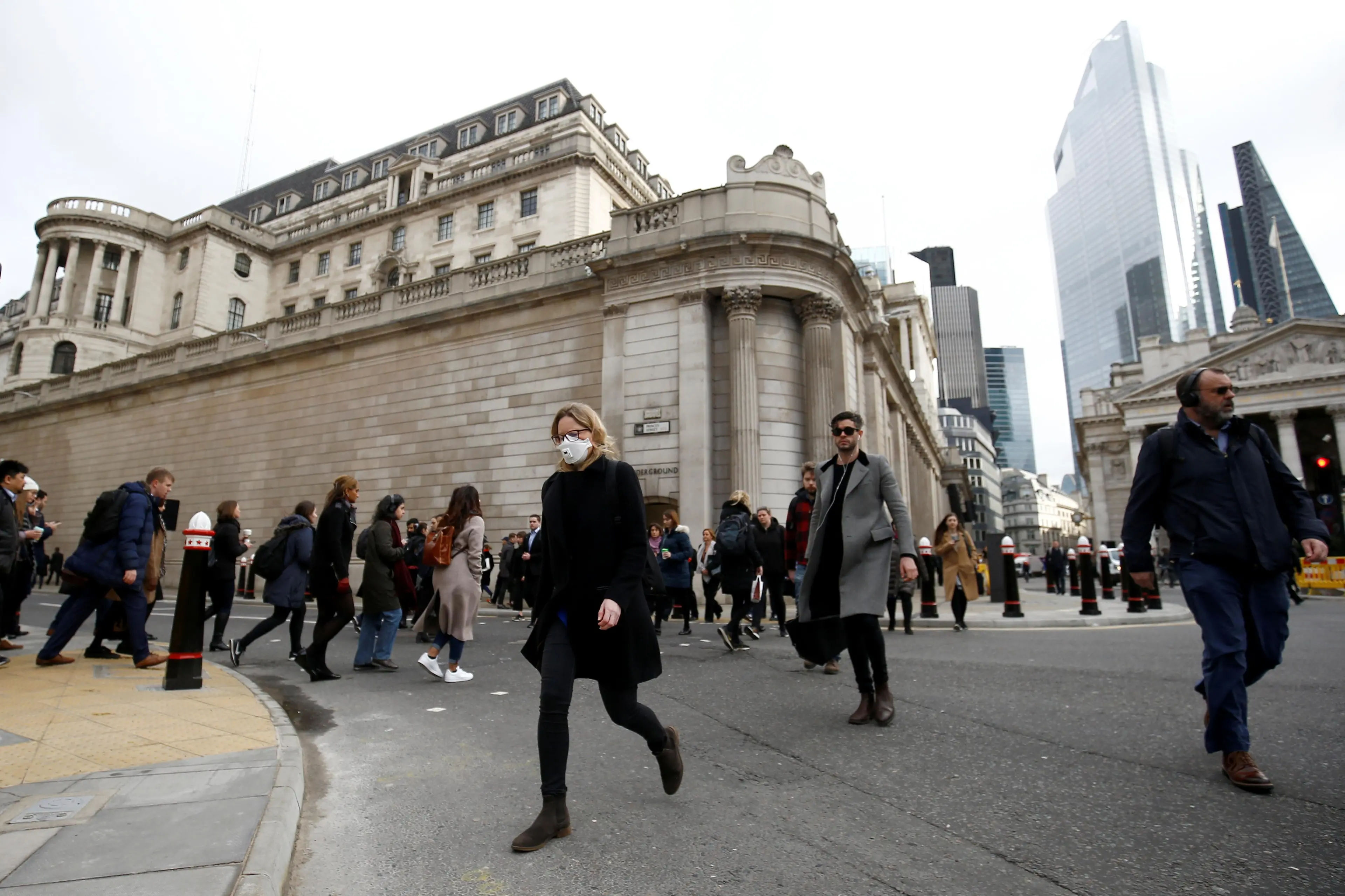PHOTO
LONDON- The Bank of England said it had halved its greenhouse gas emissions during the year to the end of March, due to switching to electricity powered by renewable sources and reduced air travel as a result of the coronavirus pandemic.
Britain's central bank has given a greater emphasis to environmental issues this year as the government prepares to host a major United Nations climate change summit in Glasgow in November.
In an annual report on its climate impact, the BoE said greenhouse gas emissions from its general operations had fallen by 53% to the equivalent of 10,343 tonnes of carbon dioxide in 2020/21, the biggest annual drop since it started calculating this data in 2015/16.
Most of the fall came to switching to renewable energy for its electricity needs, but some of the decline reflected a sharp reduction in air travel.
The BoE said it expected air travel to increase during the current year but remain below pre-pandemic levels as more international meetings took place online.
The BoE aims to cut carbon emissions to net zero by 2050, and, more ambitiously, to just over a third of their 2016 level by 2030. The BoE said it was on track to meet the latter goal.
More than two thirds of the BoE's carbon emissions last year were linked to the production of the plastic polymer used for British banknotes, while just under a quarter came from burning natural gas.
The BoE also calculated separately carbon emissions attributable to its holdings of British government debt and sterling corporate bonds.
For government bonds, emissions fell by 3% over the past year to 222 tonnes of carbon dioxide or equivalent per million pounds of gross domestic product.
For corporate bonds, emissions were down by 9% to 251 tonnes of carbon dioxide or equivalent per million pounds of company revenue.
The BoE will begin to adjust its 20 billion pound ($28 billion) corporate bond portfolio to favour more environmentally friendly companies later this year.
($1 = 0.7171 pounds)
(Reporting by David Milliken; editing by Guy Faulconbridge) ((david.milliken@reuters.com; +44 20 7542 5109; Reuters Messaging: david.milliken.thomsonreuters.com@reuters.net))





















